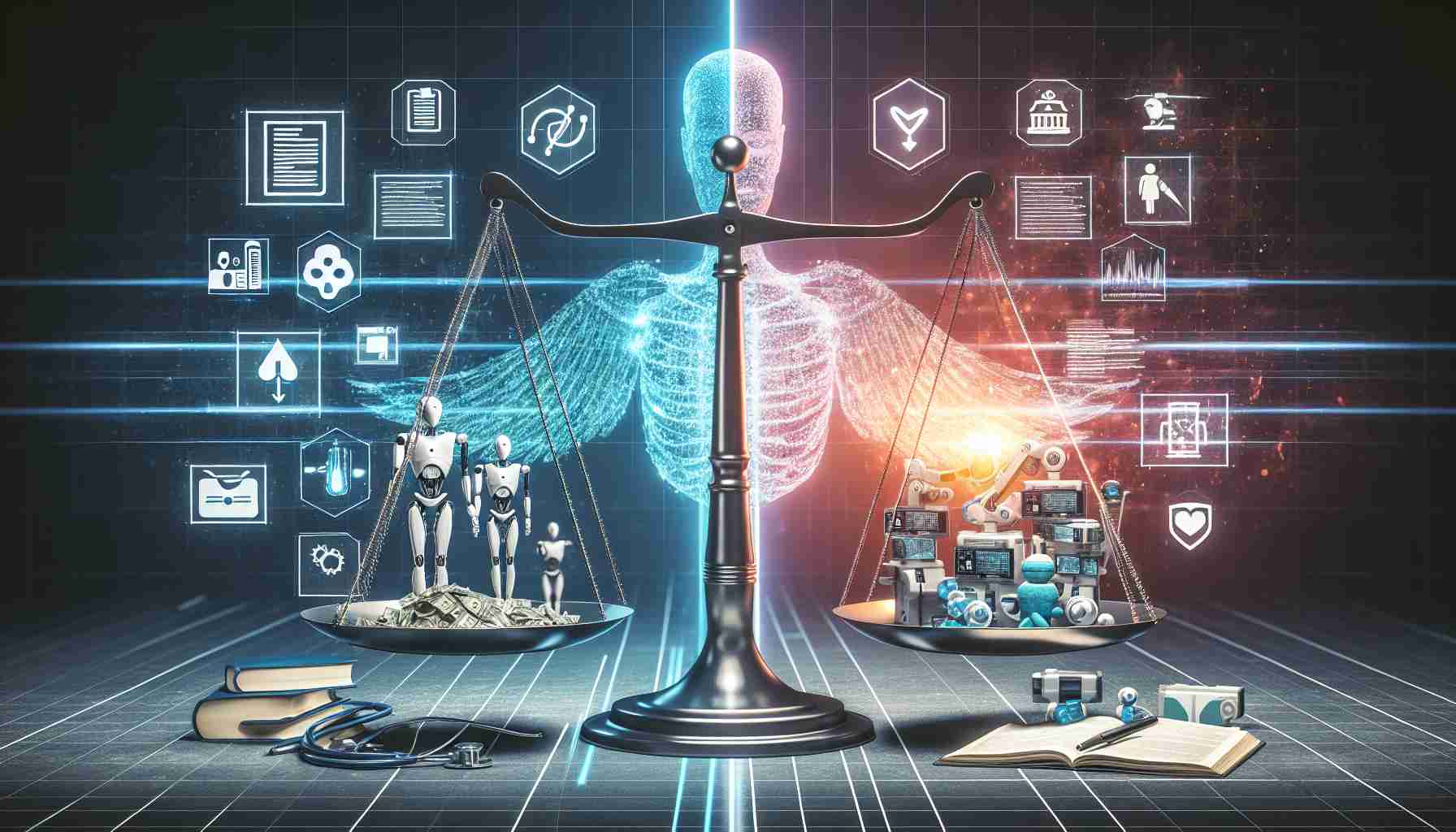Artificial intelligence (AI) has been making significant strides in the field of healthcare. Doctors are already utilizing AI tools such as predictive software and virtual assistants to enhance disease diagnosis and treatment. However, the regulatory landscape for AI in healthcare remains uncertain, as government agencies like the Food and Drug Administration (FDA) struggle to keep pace with the rapidly evolving technology.
Unlike traditional medical devices and drugs, AI software is constantly changing and learning. The FDA, responsible for regulating healthcare products, is faced with the challenge of monitoring the long-term safety and efficacy of AI products—a task it has never proactively undertaken before. Adding to the complexity, the FDA lacks the necessary resources and manpower to effectively oversee such dynamic technology.
Recognizing the urgency, President Joe Biden has pledged a coordinated response to ensure AI safety and efficacy. However, the FDA’s limitations go beyond resource constraints. The agency, according to a recent report by the Government Accountability Office, wants more authority to request AI performance data and establish specific guidelines for algorithms. Congress, however, has yet to fully address AI regulation, making any significant updates to the FDA’s powers a lengthy process.
In light of these challenges, some propose the establishment of public-private assurance labs to validate and monitor AI in healthcare. These labs, potentially located at major universities or academic health centers, would provide certification for AI algorithms that demonstrate effectiveness and safety. While this idea has gained support, critics argue that AI tested in academic settings may not perform as well in diverse healthcare environments.
Ultimately, striking a balance between AI regulation and innovation is crucial for transforming healthcare. While government regulation is essential to ensure patient safety and trust, it must keep pace with technological advancements and avoid stifling innovation. Collaboration between regulatory agencies, industry experts, and healthcare organizations is necessary to establish clear guidelines and standards that promote responsible AI adoption.
As AI continues to revolutionize healthcare, ensuring effective regulation will be pivotal in harnessing its full potential while safeguarding patient well-being. With concerted efforts from all stakeholders, the transformative power of AI in healthcare can be harnessed responsibly and ethically.
FAQ Section
1. What is the current role of artificial intelligence (AI) in healthcare?
– AI tools such as predictive software and virtual assistants are being used by doctors to enhance disease diagnosis and treatment.
2. What is the regulatory landscape for AI in healthcare?
– The regulatory landscape for AI in healthcare is uncertain, with government agencies like the FDA struggling to keep pace with the rapidly evolving technology.
3. What is the challenge faced by the FDA in regulating AI in healthcare?
– Unlike traditional medical devices and drugs, AI software is constantly changing and learning, making it difficult for the FDA to monitor long-term safety and efficacy.
4. What response has President Joe Biden pledged in relation to AI safety and efficacy?
– President Joe Biden has pledged a coordinated response to ensure AI safety and efficacy in healthcare.
5. What limitations does the FDA face in regulating AI in healthcare?
– The FDA lacks the necessary resources and manpower to effectively oversee the dynamic technology of AI in healthcare.
6. What additional authority does the FDA want in relation to AI regulation?
– The FDA wants more authority to request AI performance data and establish specific guidelines for algorithms.
7. What challenge does Congress face in addressing AI regulation?
– Congress has yet to fully address AI regulation, making any significant updates to the FDA’s powers a lengthy process.
8. What proposal has been made to validate and monitor AI in healthcare?
– Some propose the establishment of public-private assurance labs to certify AI algorithms for effectiveness and safety.
9. What concerns are raised about testing AI in academic settings?
– Critics argue that AI tested in academic settings may not perform as well in diverse healthcare environments.
10. What is the importance of striking a balance between AI regulation and innovation in healthcare?
– Striking a balance is crucial to ensure patient safety and trust, while avoiding stifling innovation in the field of AI in healthcare.
Definitions of Key Terms
– Artificial intelligence (AI): Refers to the capability of machines/computer systems to imitate intelligent behavior, perform tasks that usually require human intelligence, and learn from experience.
– Predictive software: Software that uses AI algorithms to analyze data and make predictions about future outcomes or events.
– Virtual assistants: AI-powered digital assistants that can perform tasks, provide information, and interact with users through voice or text interactions.
– FDA: The Food and Drug Administration is a government agency responsible for regulating healthcare products in the United States.
Related Links
– FDA Official Website
– National Institutes of Health
– Association for Computing Machinery (ACM)
The source of the article is from the blog mivalle.net.ar

